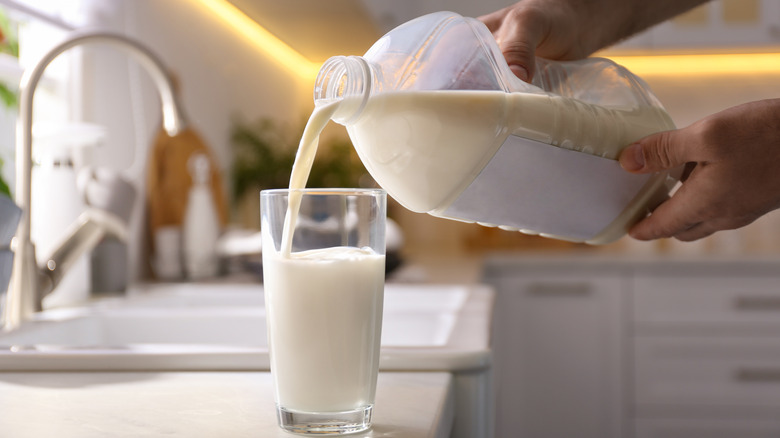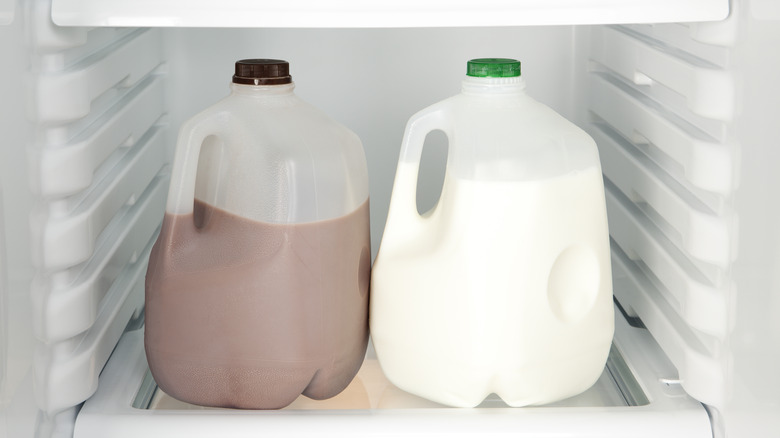Here's What Really Happens If You Drink Spoiled Milk
There's a reason people commonly scrutinize milk before they buy it: it's one of those notorious grocery items that could potentially go bad before you can finish it. It's not uncommon for milk to end up at the back of the fridge, only to tiptoe past its expiration date without anybody noticing. While there are ways to tell if your milk has spoiled, someone in the house might not notice before pouring it into their bowl of cereal or taking a large gulp. What exactly would happen if you drank spoiled milk?
Besides an instant feeling of regret set off by the noticeably sour taste in your mouth, not much would happen if you only took one accidental sip. The real potential for harm comes into play when you drink a whole cup of it. According to the Missouri Poison Center, the bacteria present in spoiled milk can impact your digestive system like common food-borne illnesses, and you're likely to face symptoms that include stomach cramping, diarrhea, and vomiting. As in other cases of food poisoning, these symptoms commonly resolve themselves within 12 to 24 hours of ingestion, though it is advisable to seek medical attention in the rare case that they persist longer than that.
How to avoid drinking spoiled milk
The most effective way to avoid drinking spoiled milk is to understand how it gets spoiled in the first place. The simple explanation is that milk, like many foods, contains bacteria, which have the potential to multiply in the milk at dangerous rates, resulting in spoilage. Most milk in the United States is pasteurized, which eliminates many of — but not all — the harmful pathogens commonly found in fresh milk.
One of the best ways to prevent the growth of these bacteria once you've opened the milk is to store it properly. Leaving milk out on the counter is one of the riskiest things you can do, especially in warm environments. Instead, properly seal the milk and put it back in a fridge set at or below 40 degrees Fahrenheit immediately after use, per the USDA's recommendations on food storage safety.
Additionally, it's important to minimize contact between dirty surfaces and the spout of the carton or bottle. Drinking from the carton, for instance, contaminates the milk each time. Even touching the spout with unclean hands can introduce new pathogens waiting to multiply. If you're ever unsure about the state of your milk due to possible contamination, make it a habit to give it a precautionary smell before drinking.

